Eat This, Cancer
Eat This, Cancer
Bodhi Wellness Blog – Week 3
It seems that cancer is appearing everywhere these days. Almost weekly we hear of a new diagnosis. Cancer has no forgiveness for age, gender, race, lifestyle, or religion. We hear of new types of cancer, new treatments, and new studies. What we do not often hear about is how to try to avoid it. The good news is that there is much you can do to help prevent this disease and much you can do to help your body fight it if you have it.
Cancer is a term for diseases in which abnormal cells divide without control and can invade nearby tissues. Cancer cells can also spread to other parts of the body through the blood and lymph systems. There are over one hundred types of cancer.
The major risk factors for cancer are tobacco, alcohol, diet, sexual and reproductive behavior, infectious agents, family history, occupation, environment, and pollution. According to the American Cancer Society, lifestyle related factors account for a significant portion of cancers today. Tobacco and alcohol are leading causes, followed by poor diet, physical inactivity, and obesity. Many skin cancers are due to overexposure to ultraviolet light from the sun. What this tells us is that much of cancer is largely preventable.
Tobacco and alcohol are choices within your control, as is limiting sun exposure. Your occupation can also affect your health, both through direct exposures such as chemicals and through the level of stress or dissatisfaction that you may carry daily.
Family history is important to know, but it is not a guarantee of your future. This is where epigenetics comes in. Epigenetics is the study of gene expression and how it can be turned up or down depending on environment, nutrition, lifestyle, and stress. While you cannot change your heredity, you can absolutely influence the way your genes express themselves. This means you can change how strongly or weakly those genetic tendencies predict your health.
So, about that food. The standard American diet, SAD, is exactly that. Much of what is sold as food in our stores is not nourishing food at all. Labels tell a story if you take the time to read them. Take for example Mountain Dew. Among its ingredients are:
EDTA (ethylenediaminetetraacetic acid): In laboratory animals EDTA has been shown to be toxic to cells, slightly toxic to genes, and harmful to reproduction and development.
BVO (brominated vegetable oil): BVO has been linked to neurological and reproductive harm and disruption of thyroid function. It has been banned in Europe and Japan. The FDA announced in 2023 that BVO would no longer be allowed in U.S. food due to safety concerns.
Sodium benzoate: A preservative that, under certain conditions, can form benzene, a known carcinogen. It is also associated with hyperactivity and cell malfunction.
Yellow No. 5: A dye associated with allergic reactions, hyperactivity, migraines, thyroid tumors, and potential DNA damage.
This is only one example of how products consumed every day are filled with additives that can be harmful to the body. Reading labels carefully is essential. If you do not know what an ingredient is, or cannot pronounce it, it is worth asking whether it belongs in your body. Whole, natural foods remain the safest choice.
To be continued…
Next month we will look at foods you can and should eat to help prevent cancer, and foods that can encourage healing if you are living with it.

